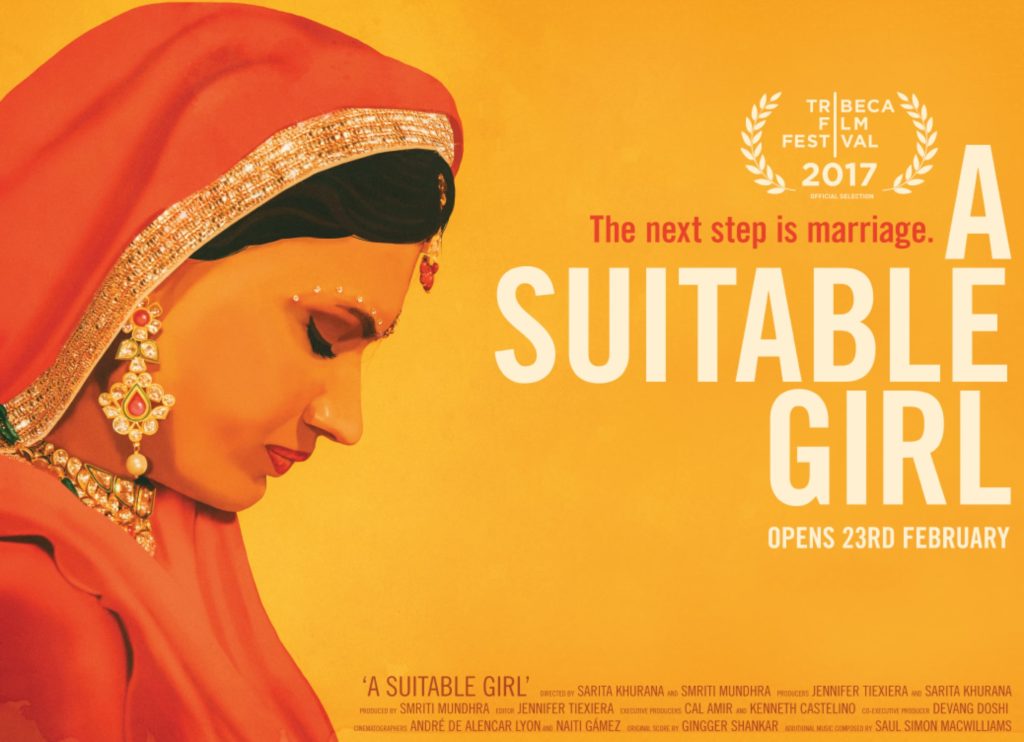
A Suitable Girl is a documentary on Amazon Prime video that follows three women and their journeys into married life. It is a great film to think about love and marriage from a completely different perspective than we have in the west. I am always amazed at how vastly different the approach to love and marriage is between the two cultures.
This documentary drops you into the East Indian values with immediacy as you meet the three women and learn their family situations and what is going on regarding getting married. It is true that in India parents prepare from the moment a daughter is born to lose her to her future husband and his family. This is a given from the start of any girl’s life in India.
From that fundamental tenet, we meet the three women who are all living with their family of origin and in vastly different situations. One is preparing to marry a man she chose herself – they were high school mates – and move away to a different state. A second one is an intellectual and highly educated, with a Mother who is a matchmaker, except she cannot play this role for her daughter. And, last, is a woman who is turning 30 and has been in the marriage matchmaking game for several years with no results.
Unlike in America, in India the family is heavily involved with this decision of whom their daughters will marry. From taking pictures for the marital ads to attending marriage meet-ups, to meeting a prospective suitor and his family over tea, this is a family affair. The whole family is invested in making the very best match it can for the daughter. For families with daughters, they are looking for money and status. For the families with sons, often beauty and light skin are named as desirable qualities. Very traditional — even in 2017.
In America. it is on the individual man and woman to meet, determine if the person is a potential mate, date/live together for a time, and then marry one another. This process can take years and is often founded on the idea that “being in love” and “physically attracted” to the other as the paramount qualities to deciding if two will marry one another.
In India, as you will see if you watch this documentary, love hardly factors in to this decision at all. Rather, the couples’ horoscope should match, the man should be from a “good” family and have high earnings, and the woman can be educated, but also beautiful and fair-skinned, as well as one who appreciates the traditional wifely duties of cooking and caring for elders. After all, she will leave her parents and join him, often in his parent’s home to take care of them. Matches are set within minutes of meeting.
Which way is right? Which way is wrong? Being a bi-racial woman made up equally of Caucasian and East-Indian identities, I believe both ways have merit and each view is a way to meet and marry. The latter is far more communal and practical, but I think more of this in the western way we choose our spouses, would be a good thing. Simultaneously, infusing a little more time to get to know the other with some space away from one’s birth family would also be a good thing for the way toward an Indian marriage.
Imagine my surprise when I saw this review of A Suitable Girl in Variety that slams the Indian way toward marriage. Being half Indian, I am offended by this review and complete criticism of the film and these three women’s lives as they journey toward marriage. Yes, it is constricted by tradition, but it is also tradition that guides their lives as well. It’s hard to keep any type of open mind with these types of reviews.
I suppose the women each have their own “happy” ending. Whether in the East or the West, I think this is a Disney promise that often proves to be elusive. Nothing can prepare a person for marriage and all that comes with it no matter how societies try to approach the landmark decision in one’s life.
I believe there is merit in watching such a documentary to expand our minds as to the different ways people approach marriage around the globe. Feeling stuck in the western way? Get out of yourself and see a new perspective.
